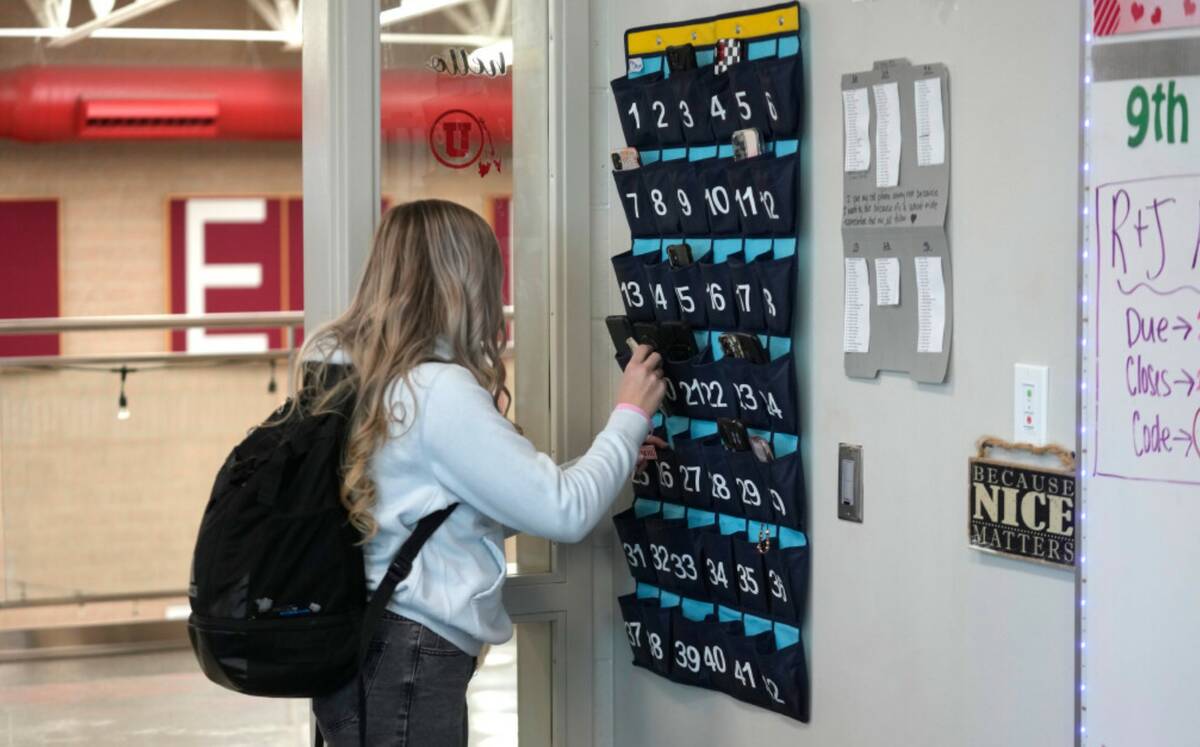EDITORIAL: Students, classrooms and cellphones don’t mix
The Clark County School District is joining a growing number of districts nationwide that are addressing distractions created by students and their cellphones. Some parents may not approve, but such moves are long overdue.
The district, like many across the country, currently limits the use of cellphones during class. But any teacher will tell you that the prohibition is rarely enforced and it remains a daily struggle to stop kids from gazing into their electronic devices when they should be focused on the academic lesson at hand.
Next fall, the Wall Street Journal reports, Clark County will go further. Local campuses will “participate in a pilot program requiring that cellphones be stowed during class in non-locking pouches that block cell signals.” The policy will apply to students in sixth through 12th grades.
“We have to do something,” Tambi Lewis, a history teacher, told the Journal. “There’s no learning going on because of the phones.”
Indeed, studies have found that getting cellphones out of the classroom can improve the mental health of students while increasing academic performance. The latter makes perfect sense, particularly for students struggling with their courses. How can they absorb the material when they’re scrolling social media or shopping online during instruction time? Forcing teachers to interrupt lessons to deal with smartphone use creates only another classroom disturbance.
“Existing studies provide evidence that allowing phones in the classroom negatively impacts test scores and long-term learning retention,” researcher Dylan Lukes told the Harvard Graduate School of Education.
Yet despite the obvious problems with classroom cellphone use, some parents are worried about losing contact with their children during an emergency. Others have become addicted to modern-day parenting and cannot imagine being out of contact with their kids for even a few hours. “Having open lines of communication with our kids,” Keri Rodrigues, president of the National Parents Union, “is something that we are really comfortable with, accustomed to, and we’re not willing to give that up.”
We’ll leave the debate over the downside of helicopter parenting for another day. But suffice it to say that schools can implement commonsense cellphone policies without cutting off parents from their children. Allowances can be made for children with special needs, for instance. As for safety, Mr. Lukes noted that there “are reasons why having phones within schools could potentially be accelerators of negative student behavior” during daily interactions between students.
The Clark County School District’s academic numbers need all the help they can get. The cellphone pilot program will help more students engage with their studies, and is a positive step forward.

















